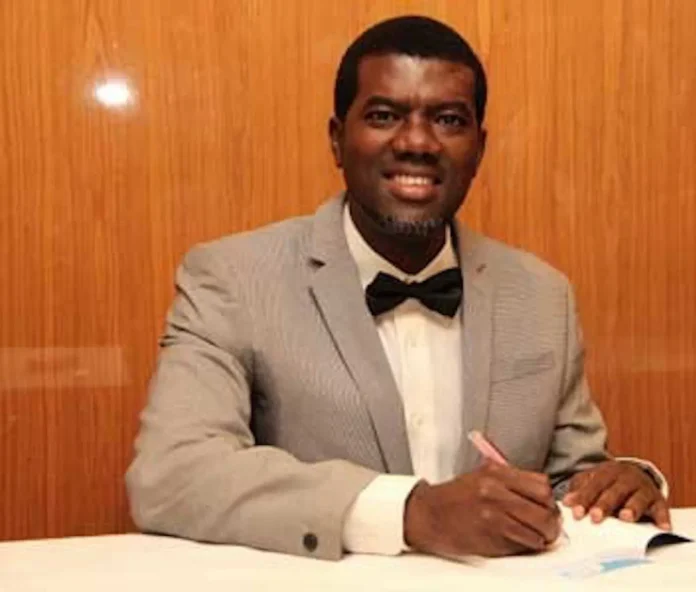Former presidential aide, Reno Omokri, has dismissed veteran journalist and politician Dele Momodu’s claims that President Bola Tinubu is undermining democracy in Nigeria.
Omokri’s response comes after Momodu’s recent interview on The Morning Brief on Channels Television, where he criticized Tinubu’s decision to suspend Rivers State Governor Siminalayi Fubara, Deputy Governor Ngozi Odu, and the state assembly, calling it “anti-democratic.”
Omokri, however, argued that Momodu’s statement lacked factual backing and was politically motivated due to his affiliation with the opposition. He accused Momodu of ignoring the escalating violence in Rivers State before the president’s intervention.
He referenced multiple violent incidents, including the October 29, 2023 bombing of the state assembly, Governor Fubara’s declaration on May 8, 2024, that the assembly no longer existed, the June 25, 2024 bombing of an anti-Fubara protest, and the October 7, 2024 burning of local government secretariats.
“Your anger was only reserved for the President when he tried to restore order in Rivers State and prevent further chaos,” Omokri stated, suggesting that Momodu’s stance was selective.
Addressing economic concerns, Omokri countered Momodu’s criticism by citing key statistics, including a drop in inflation from 34.80% to 24.48% in February 2025, a record-breaking 6,003MW power generation, increased federal allocations, and a 209.6% rise in Nigeria’s trade surplus to ₦18.86 trillion in 2024.
He also noted improvements in security, stating that terrorism-related deaths were at their lowest since 2014, while Nigeria’s GDP grew by 3.8% in 2024. Additionally, he highlighted the 25% surge in the personal wealth of Nigerian billionaires, including Aliko Dangote and Femi Otedola, as a sign of economic progress.
“In conclusion, sir, based on the aforementioned statistics devoid of emotions, I put it to you that your claims are alarmist and a misrepresentation of the true state of Nigeria and the health of our democracy,” Omokri asserted.
His remarks add to the growing debate over Tinubu’s governance, reflecting the sharp political divide in views on democracy, security, and economic performance under the current administration.

